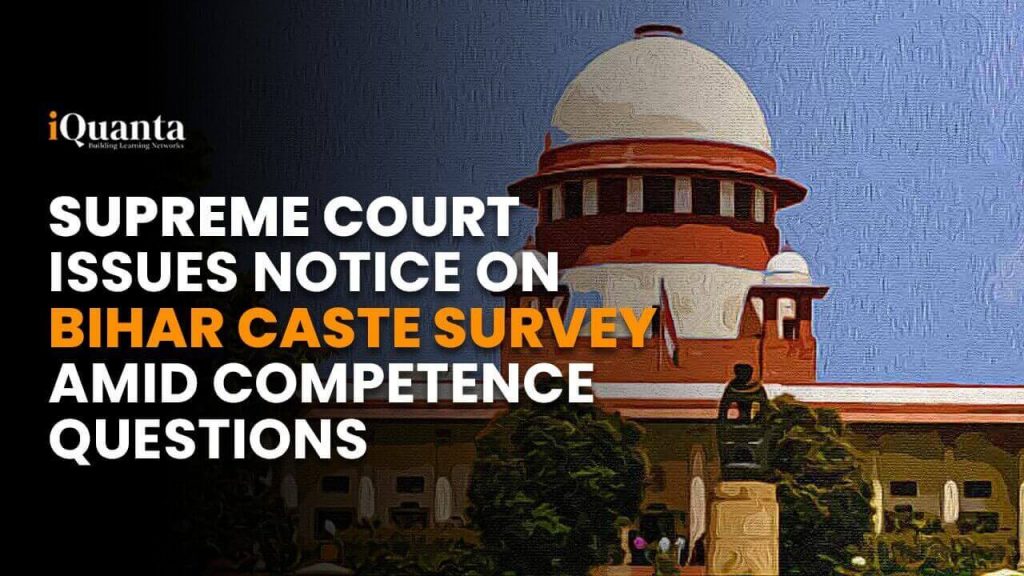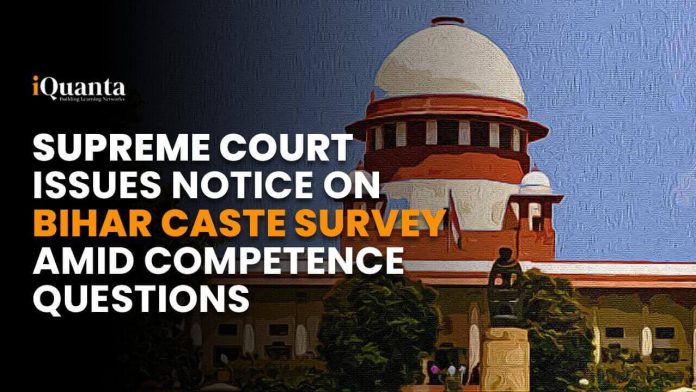
Genre : Indian News
In a significant legal development, the Supreme Court of India has taken cognizance of a series of petitions challenging the controversial caste survey conducted by the Bihar Government. The bench, consisting of Justices Sanjeev Khanna and SVN Bhatti, issued notices to relevant parties and expressed a need for in-depth consideration of the matter. The next hearing is scheduled for January 2024.
The Supreme Court bench, led by Justice Sanjeev Khanna, raised critical questions regarding the Bihar government’s authority to undertake the caste survey. While no restraining order was issued, the court indicated that it would closely examine the competence of the state government in conducting such a survey.

Senior Advocate Shyam Divan, representing the state, clarified that the decision to publish the survey results was based on the court’s prior indication that the matter’s first aspect would be the issuance of a notice. The bench, however, refrained from halting any ongoing activities related to the survey.
Justice Khanna emphasized the importance of not obstructing the government’s decision-making process, stating, “We cannot stop the state government or any government from taking decisions. That will be wrong. Yes, if there is an issue with regard to the data, that will be considered. We are going to examine the other issue with regard to the right of the state government to do it.”
The Supreme Court is currently reviewing appeals challenging the August 2, 2023 ruling by the Patna High Court, which upheld the Bihar government’s decision to carry out the caste survey.
Senior Advocate Aparajitha Singh, representing some of the appellants, argued that the data collected through the survey should not be acted upon, as it was allegedly obtained illegally. She cited the 2017 privacy case (K S Puttaswamy vs. Union of India), stating that even data collection requires legal backing, and the survey had been conducted based on an executive order.
Singh expressed concerns that the state might publish the data before the next hearing and reiterated, “Our only issue is data is collected unlawfully and cannot be acted upon.”
Justice Khanna, however, indicated that the court had formed a preliminary view after reviewing the judgment, suggesting potential complexities ahead.
Notably, the petitions challenging the Bihar caste survey contend that data collection without a legal framework violates privacy rights. The survey, conducted on the basis of an executive order, has sparked a legal battle over the legitimacy of its findings and the methods employed.
As the legal proceedings unfold, the Supreme Court’s upcoming hearing in January 2024 is eagerly awaited, as it holds the potential to set significant precedents regarding data collection, privacy rights, and the role of executive orders in sensitive matters such as caste surveys.
If any of the exams you’re preparing for concerns General Awareness (MBA, UPSC, GDPI, etc.), you can go for iQuanta’s GK Course.


